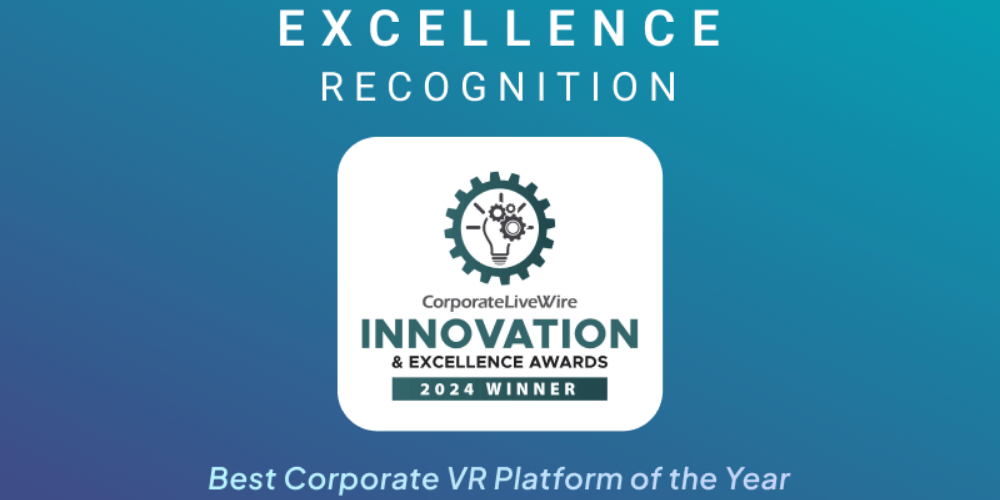
How Universities Can Increase Student Retention and Save Millions Let’s be real: keeping students engaged in today’s online learning environment is tough, and student retention has become a critical challenge for British universities—and universities across Europe: how do you keep students from feeling disconnected, overwhelmed or just plain lost in the sea of virtual learning? When students drop out, it’s not just the financial loss that stings—it also chips away at the university’s reputation. But what if there was a way to change this narrative? That’s where Unyted comes in. This digital platform is flipping the script by boosting student retention and helping universities secure their financial future in the process. The Big Problem: Student Retention Challenges Let’s break it down. Last year alone, more than 41,000 students in the UK dropped out of their degree programmes. Each dropout costs a university £9,250 in lost tuition fees. Multiply that by thousands, and you’re staring at a potential £1.6 billion loss every year. That’s a massive financial hit that no university can afford. But it’s more than just a money problem. High dropout rates can seriously damage a university’s reputation, making it harder to attract new students and secure the funding they need. It’s a vicious cycle that can be tough to break. The Rise of Online Learning and Its Challenges Online and hybrid learning were already gaining traction before the pandemic, but COVID-19 hit the fast-forward button. Universities like The Open University, which specialise in distance learning, are now enrolling over 150,000 students each year. But while online learning offers flexibility, it also comes with its own set of challenges—like keeping students engaged and motivated. Without the traditional campus experience, many students struggle to stay on track. They miss out on the social interactions and support networks that help them feel connected to their studies. And when they drop out, the financial impact on the university is huge. The Silver Lining: Embracing Digital Trends Here’s the good news: these challenges also present an opportunity for universities to rethink how they approach education. New trends in education—like gamification, AI-driven personalisation and nano-learning—are all about creating more engaging and tailored learning experiences. And platforms like Unyted are leading the way. Unyted, The Digital Platform That’s Changing the Game Unyted isn’t just another online learning tool—it’s a game-changer. It’s a digital platform designed to create immersive, interactive environments that keep students hooked. Here’s what makes it stand out: Immersive Learning Environments: Imagine virtual classrooms and 3D simulations that make learning not just interactive but actually fun. This isn’t your typical boring online lecture—students are active participants. Gamification and Interactive Content: Unyted turns learning into a game. With progress tracking and collaborative challenges, students stay motivated and engaged. Personalised Learning Paths: Every student is unique, and Unyted gets that. The platform’s AI-driven system tailors the learning experience to each student’s needs, helping them stay on track and succeed. 24/7 Support Networks: Whether it’s academic help or mental health support, Unyted ensures students have access to the resources they need, whenever they need them. Plus, peer-to-peer communities help students connect and support each other. The Financial Impact of Improved Student Retention Now, let’s talk numbers. If Unyted can help reduce dropout rates by 50%, UK universities could keep an additional 20,500 students each year. That’s £189 million in tuition fees saved annually. Over three years, that’s £567 million that stays in the university’s pockets. Beyond the Savings: The Bigger Impact of Student Retention Improving retention isn’t just about saving money. It also leads to significant cost savings and operational efficiencies: Lower Recruitment Costs: When fewer students drop out, universities don’t have to spend as much on recruiting new ones to fill the gaps. Better Resource Allocation: Higher retention rates mean universities can plan and allocate resources more efficiently, cutting down on waste. Scalability: Unyted’s platform is built to grow with the university, meaning it can educate more students without a massive increase in costs. And Then There’s the Funding… Better retention rates make universities more attractive to donors and grant providers. A solid track record in keeping students engaged boosts a university’s reputation, which in turn attracts more funding. It also improves the university’s creditworthiness, making it easier to secure favourable financing. In today’s digital-first world, student retention is more critical than ever. Platforms like Unyted are stepping up to help universities not just keep their students engaged, but also protect their financial future. By embracing the latest trends in digital education, universities can turn the challenge of retention into an opportunity for growth and success. The bottom line? A stronger, more financially stable institution that’s ready for whatever the future holds. Ready to revolutionise student retention at your university? Learn more and
Web3 to Web4: Shaping the Future of Digital Interaction

In our rapidly changing digital world, Web3 has truly revolutionised how we interact online. But what is Web3, and how are we making the leap to Web4? In this article, we’ll dive into what Web3 is all about, how we’re moving towards Web4 and how Unyted is leading the way in decentralisation, enhancing security and outlining data privacy.
Unyted Wins Best Corporate VR Platform of the Year

Unyted has been honoured with the Best Corporate VR Platform of the Year award at the Innovation and Excellence Awards 24/25. Discover how Unyted is revolutionising digital solutions for businesses.
Shopping in 3D Worlds: Why Settle for the Usual When You Can Have the Unique

Shopping in 3D Worlds: Why Settle for the Usual When You Can Have the Unique From the Sofa to a Luxury Shopping Paradise: Greater reach and lower costs with 3D shopping in the Metaverse. Why rely on boring online shops when your customers can explore your store in 3D worlds? Welcome to the Metaverse, where shopping in 3D worlds is not only fun but also an immersive experience. All of this directly from your browser. Innovative Shopping Experiences in 3D Worlds 3D shopping in web-based 3D worlds offers store owners, online shop operators, and retailers an innovative, cost-efficient alternative to traditional web shops, combining online convenience with a luxurious and social shopping experience. Yesterday’s Boring Stuff: Static Websites and Endless Scrolling Let’s be honest: who still enjoys dull product lists and endless scrolling through static websites? 3D shopping in the Metaverse offers a welcome change. Imagine your customers entering a virtual product palace – stunning store architecture typically found in the world’s most exclusive locations. And all this from the comfort of their sofa, without bulky VR headsets. Shopping in 3D Worlds: Home Alone Yet Together Shopping with friends from a laptop – even if they are on the other side of the world. The experience of exploring virtual aisles, viewing products, and discussing them adds a social and interactive dimension that traditional online shops can’t match. Say Goodbye to Exorbitant Rent Costs Why struggle with the high rental and operational costs of physical stores when a one-time investment in a stunning 3D environment can suffice? This smart investment offers long-term savings and provides your customers with an unforgettable shopping experience that keeps them coming back for more. AI Avatars: The Tireless Sales Assistants Imagine your customers always having access to a personal sales assistant that never gets tired. AI avatars are available to online shoppers 24/7, answering questions about products and providing personalised recommendations. These virtual assistants are a significant advancement over traditional chatbots. Thanks to advanced AI technologies like ChatGPT, shopping becomes more efficient, personal, and enjoyable – just like having an expert salesperson always available. The Benefits of Shopping in 3D Worlds at a Glance: Immersive Experience: Shoppers can enjoy realistic and interactive environments. Social Shopping: Customers can shop and interact with friends. Luxury and Comfort: High-quality virtual store architecture without the high rental costs for store owners. Tireless Sales Assistants: AI avatars provide continuous support and personalised recommendations for shoppers. Cost Savings: Store owners save on rental and personnel costs. Environmentally Friendly: Lower energy consumption, no deforestation, and reduced CO2 emissions benefit everyone. Current Examples: Major Brands Embracing the Metaverse Walmart: Walmart Realm offers a Disney-like shopping experience with avatars and funky music. Shoppers can explore three distinct worlds – home, beauty, and fashion – and purchase selected products. However, it feels more like a computer game and is less practical due to the limited product selection. Gucci: Gucci has launched a virtual “Gucci Garden” on Roblox, where customers can purchase exclusive digital accessories. Balenciaga: This fashion brand has developed its own game, “Afterworld: The Age of Tomorrow,” providing a futuristic shopping experience. Shopping has never been so adventurous! Samsung: On Decentraland, Samsung has created a virtual replica of its New York flagship store, allowing customers to experience products and participate in exclusive events – all without the need for a plane ticket to NYC. Many top fashion brands are already experimenting in the Metaverse, and their innovative approaches are truly captivating. From stunning virtual fashion shows to exclusive digital collections, the possibilities are endless. Check out our list of the top 11 fashion brands in the Metaverse to discover how these brands are transforming the shopping experience and what unique offers they bring to the table. Welcome to the Exciting World of 3D Shopping For store owners, online shop operators, and retailers of high-end or exclusive products, shopping in 3D worlds within the Metaverse presents an innovative and cost-effective alternative to traditional web shops. It blends the convenience of online shopping with the luxurious feel and social experience of physical stores. Step into the future of retail and offer your customers a shopping experience they will never forget. Ready to leap into the third dimension? At Unyted, you can start building your own online store today or invite everyone into your bespoke product palace – all you and your customers need is a web browser. It is much easier than you think! Please contact us at info@unyted.world to schedule a demo. LinkedIn X Telegram
INUVERSE: A Revolutionary Step into Immersive Education Technology

INUVERSE: A Revolutionary Step into Immersive Education Technology Last week, we witnessed a major leap forward in the world of immersive education technology with the launch of INUVERSE. This exciting new joint venture is the result of a groundbreaking collaboration between Unyted Ltd and INU. INUVERSE promises to transform how we learn by leveraging the latest immersive education technology to create engaging educational experiences in virtual spaces. Redefining Educational Experiences Under the leadership of Dr Maxine Room CBE, INUVERSE aims to redefine the educational experience by harnessing the power of Web 3 and ultimately Web 4 technologies. Dr Maxine Room stated: “INUVERSE aims to redefine the educational experience by leveraging the power of Web 3 and ultimately Web 4. This collaboration will offer a diverse array of educational opportunities, including degrees, microcredentials, research projects, and employer-led training programs, all delivered in an innovative, immersive environment.” Leveraging Metaverse Technology Unyted Ltd and INU combine Metaverse technology with a flexible online education model, using virtual reality, augmented reality, and digital tools to create an engaging and immersive learning experience. Key Features of INUVERSE Immersive Learning Environments: Students can learn in virtual spaces that mimic real-world settings, from laboratories to corporate environments, enhancing practical skills and knowledge application. Flexible Education Pathways: With a variety of programs ranging from full degrees to microcredentials, learners can tailor their education to meet their career goals and personal schedules. Research and Innovation: INUVERSE fosters a collaborative research community, using the Metaverse to conduct and share groundbreaking studies. Employer-Led Training: Companies can design and deliver customised degrees and training programs, ensuring employees acquire relevant skills in an engaging manner. Celebrating the Launch of the Joint Venture Florian Krüger, CEO of Unyted Ltd, expressed his excitement about the collaboration, stating: “We are thrilled to embark on this journey with INU. INUVERSE represents the future of education, where technology and innovation converge to create unparalleled learning opportunities. Our mission is to make education more accessible, engaging, and effective for learners worldwide.” Hauke Müller-Späth, Director of INU, added: “INUVERSE is a testament to our commitment to revolutionising education. By combining our expertise with Unyted Ltd’s state-of-the-art Metaverse platform, we are creating a new paradigm for how education is delivered and experienced.” The Future of Education The launch of INUVERSE in London on May 23, 2024, marks the beginning of an exciting chapter in the evolution of immersive education technology. This collaboration between Unyted Ltd and INU is poised to reshape educational practices by providing students and professionals with access to cutting-edge, immersive learning experiences. By embracing the latest in immersive education technology and innovative educational models, INUVERSE is setting the stage for the future of education. This platform not only enhances practical skills and knowledge application but also fosters a collaborative research community and offers flexible education pathways to meet the diverse needs of learners. Stay tuned as we continue to explore and expand the possibilities of immersive learning with INUVERSE. LinkedIn X Telegram
Business Travel in the Digital Age: Digital Spaces vs. Zoom

Business Travel in the Digital Age: Digital Spaces vs. Zoom Business travel costs are soaring in a post-pandemic world, with companies facing a crisis of rising expenses. According to the Handelsblatt, corporate travel expenses for German companies have surged by 19% from 2019 to 2023, far outpacing general inflation rates. This rapid increase is challenging companies who are struggling to regain stability in an already volatile economic landscape. Rising Costs and Company Responses The cost hikes are not uniform. While travel cost within Europe has increased by a modest 6%, trips to key non-European destinations, like North America, have jumped by a third since 2019. A North American business trip now costs over €1700 euros, a nearly 50% increase. Many companies are responding by freezing travel budgets at 2019 levels or imposing outright travel bans. This trend, along with the pandemic’s impact, has led to a shift toward virtual meetings. Moreover, according to the stats sourced from the article “European Business Travel Spending is Forecast to Reach 450 Billion USD by 2027” and our pricing, €1,000 spent on a single business trip for one person is roughly equivalent to the annual cost of providing interactive live meetings for up to four employees on Unyted’s platform. Since travel expenses can account for up to 10% of a company’s revenue, particularly for the 42% of employees who travel frequently, shifting meetings online could be a cost-effective alternative. Unyted can transform the expense of an average business trip into a full year of engaging virtual meetings for 1-4 employees. Let us show you how. Zoom vs. Digital Spaces While platforms like Zoom became essential for remote communication during the pandemic, they lack the immersive experience of in-person interactions. This is where digital spaces come in. Unlike Zoom’s 2D interface, virtual worlds provide a 3D virtual reality environment, allowing users to interact through avatars in simulated spaces. This offers a more lifelike meeting experience and could be a game-changer for businesses seeking to maintain human connections while controlling costs. In digital spaces, business interactions can feel more like in-person meetings. Avatars allow users to engage in a range of interactive activities, from shaking hands to collaborating on projects. This additional level of interactivity could make it a superior alternative for building business relationships and fostering collaboration. Digital environments can help companies save on business travel expenses by offering a virtual alternative to physical travel, reducing costs associated with transportation and accommodation. This approach also contributes to sustainability by lowering the need for long-haul travel, thus reducing carbon emissions. Virtual meetings are also more accessible to a broader audience, promoting inclusivity. Given the complexities surrounding business travel, companies must decide whether to continue cutting back on travel or embrace virtual communication through platforms like the Metaverse. It has the potential to offer a cost-effective, immersive alternative to traditional business travel and video platforms, redefining the business travel and remote work landscapes. The decisions companies make now will shape the future of business interactions. here to see how our solutions can lead the way.
Unyted Spearheads Global Education with the Launch of INUVERSE in London

Unyted and INU launch INUVERSE in London, marking a new era in global education with events from Cologne to London.
Verbinden wie “in echt” | Co-Kreative Szenarien

Im August 2020 wurde Henning vom Thema der Zeitschrift “managerSeminare” gefragt, wie man co-kreative Szenarien über Distanz kreiert. Das Spezial ist in der November-Ausgabe erschienen und war nach einer Woche ausverkauft. Analog.
